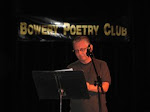This is a remarkable--oddly remarkable--recording on a number of fronts. First of all, it purports to be a recording of music for manora (aka menora or nora), a classical dance drama practiced in southern Thailand and northern Malaysia. And, I assume, it is that. But it's more. Four bonus tracks more. At the end of each side of the cassette, we're treated to two tracks of electric Thai music.
On Side A, the two end-tracks (6 and 7) feature electric guitar, bass, organ, and percussion. The style to my ears sounds morlam-ish, but not quite like any morlam that I've ever heard before.
(Listen to track 6 here--click on "Phra Aphai" and hit Play.)
A very seasoned woman's voice leads track 6, with an male response? Chorus? A bunch of emphatic "Ah, ah, ah"s. It's exquisite. Track 7 reverses the roles, giving the lead to the male singer, the "Ah"s to the female.
Side B's electric tracks mirror the male-female switch-up, and sound more like what I would likely assume was morlam.But it is worth emphasizing that, sonically, these four tracks have little obvious sonic relationship with the rest of the cassette, other than what sounds like the repetition of the word "menora" in the two electric end tracks on Side B.
I'm hoping perhaps Peter Doolan of the legendary Monrakplengthai might be able to shed some light on what's going on.
UPDATE: Peter sends along the following information:
thanks so much for this, gary!
after a little research (thanks especially to the plengpakjai webboard archives) i have some findings to share:
this cassette is primarily of a re-release of a hat records LP from pricha amnuaisin and his troupe (A1-A5, B1-B5), which is classic manorah. tacked on the end of each side are manorah-style luk thung singles (and their b-sides) from thitthong nakhonsi and khwannapha ladawan, which seem to have had some degree of local popularity.
this is really extremely rare stuff! most of what i turned up was people asking if anyone had access to it, so i'll be hooking them up post-haste, thanks to you!
artist(s): various
album: เพลงพื้นเมืองภาคใต้ มโนราห์ (phleng phuen mueang phak tai: manorah)
tracklist:
01. ปรีชา อำนวยศิลป์ (pricha amnuaisin) - คำเตือนเพื่อนร่วมชาติ (kham tuean phuen ruam chat)
02. ปรีชา อำนวยศิลป์ (pricha amnuaisin) - กลอนเตือนหญิง (klon tuean ying)
03. ปรีชา อำนวยศิลป์ (pricha amnuaisin) - กลอนวอนพระอินทร์ (klon won phra in)
04. สังเวียน เอ็งเส้ง (sangwian engseng) - ทุกข์ร้อยแปด (thuk roi paet)
05. บำรุง จันทรศาล (bamrung chantharasan) - อวยพรปีใหม่ (uai phon pi mai)
06. ขวัญนภา ลดาวัลย์ (khwannapha ladawan) - พระอภัยเป่าปี่ (phra aphai pao pi)
07. ทิดทอง นครศรี (thitthong nakhonsi) - ปี่พระอภัย (pi phra aphai)
08. บำรุง จันทรศาล (bamrung chantharasan) - กลอนสอนเมีย (klon son mia)
09. บำรุง จันทรศาล (bamrung chantharasan) - กลอนสอนหญิง (klon son ying)
10. นกน้อย ปกาใส (noknoi pakasai) - กลอนสอนเพื่อนหญิง (klon son phuean ying)
11. สังเวียน เอ็งเส้ง (sangwian engseng) - ของแพง (khong phaeng)
12. สังเวียน เอ็งเส้ง (sangwian engseng) - อย่าหลงผิด (ya long phit)
13. ขวัญนภา ลดาวัลย์ (khwannapha ladawan) - มโนราห์-พระสุธน (manorah-phra suthon)
14. ทิดทอง นครศรี (thitthong nakhonsi) - พระสุธน-มโนราห์ (phra suthon-manorah)
Grab this one-of-a-kind treasure here.


































%20-26%2066%20centre%20-5%2031.jpg)
































































.jpg)






























